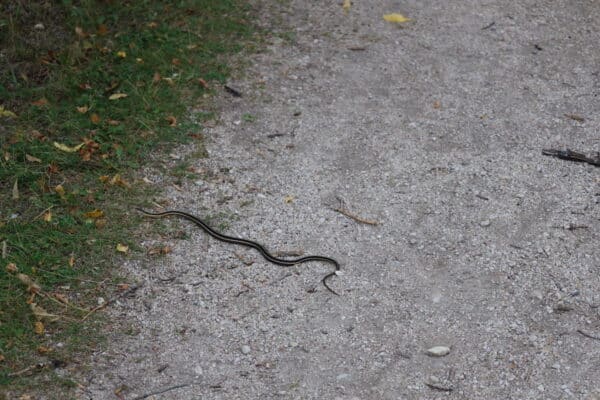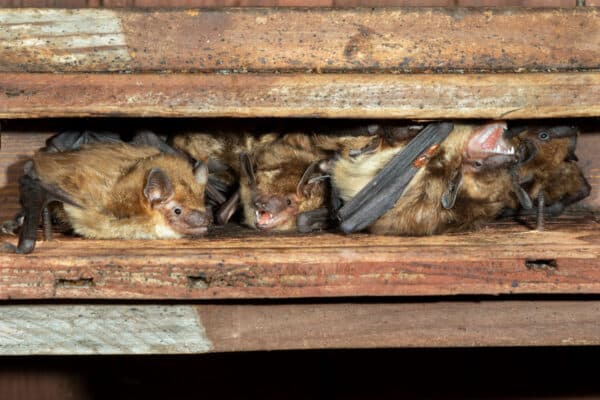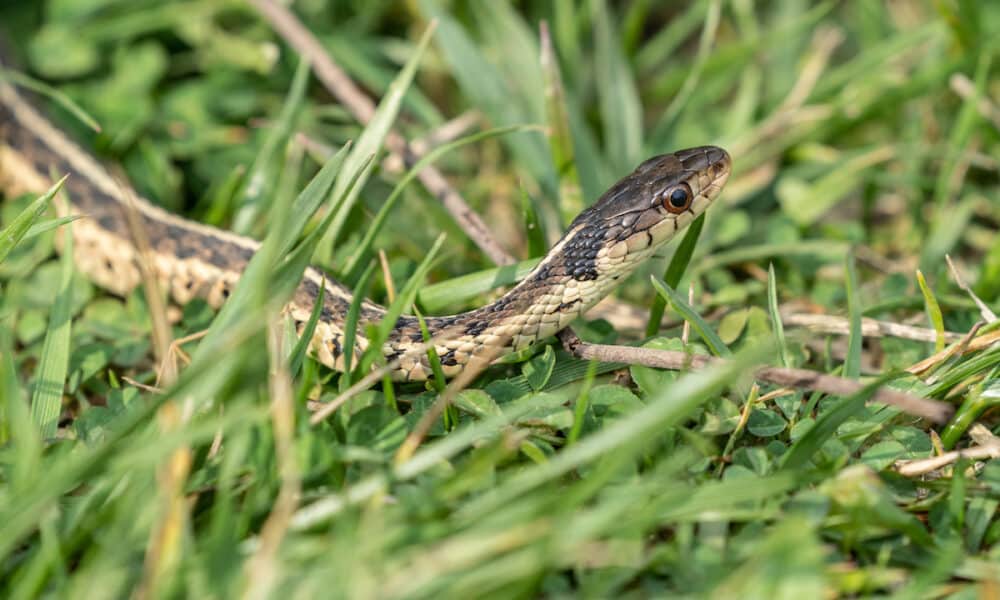
Snakes are an essential part of our ecosystem because they help control pests like rodents and insects. However, when they start slithering too close to home, they can cause concern for homeowners.
While most snakes are harmless and tend to avoid human interaction, the presence of snakes on your property can be unsettling.
The good news is that there are several steps you can take to make your property less attractive to snakes.
By understanding what draws them in and taking preventive measures, you can significantly reduce the likelihood of encountering snakes around your home.
What Attracts Snakes to Your Property?
To effectively keep snakes away, it’s important to first understand what might be attracting them to your property in the first place. Snakes are generally looking for two things: food and shelter. If your property offers either of these, then it could become a frequent hangout for these reptiles.
1. Food Sources
- Rodents: The presence of rodents is the number one reason snakes will take up residence near your home. Mice, rats, and other small mammals are primary food sources for many snake species.
- Insects and Small Animals: In addition to rodents, some snakes also feed on insects, frogs, and birds. A property with an abundance of these creatures can be a snake magnet.
2. Shelter
- Cool, Dark Places: Snakes are cold-blooded so they seek out cool, shaded areas to regulate their body temperature. Piles of wood, debris, or dense shrubbery provide ideal hiding spots.
- Water Sources: Snakes need water to survive, so properties with ponds, birdbaths, or other water features can attract them.
- Overgrown Vegetation: Tall grass, thick brush, and unkempt gardens provide excellent cover for snakes, making them feel safe and secure.
Now that you know what attracts snakes, let’s explore how to make your property less inviting to these slithering guests.
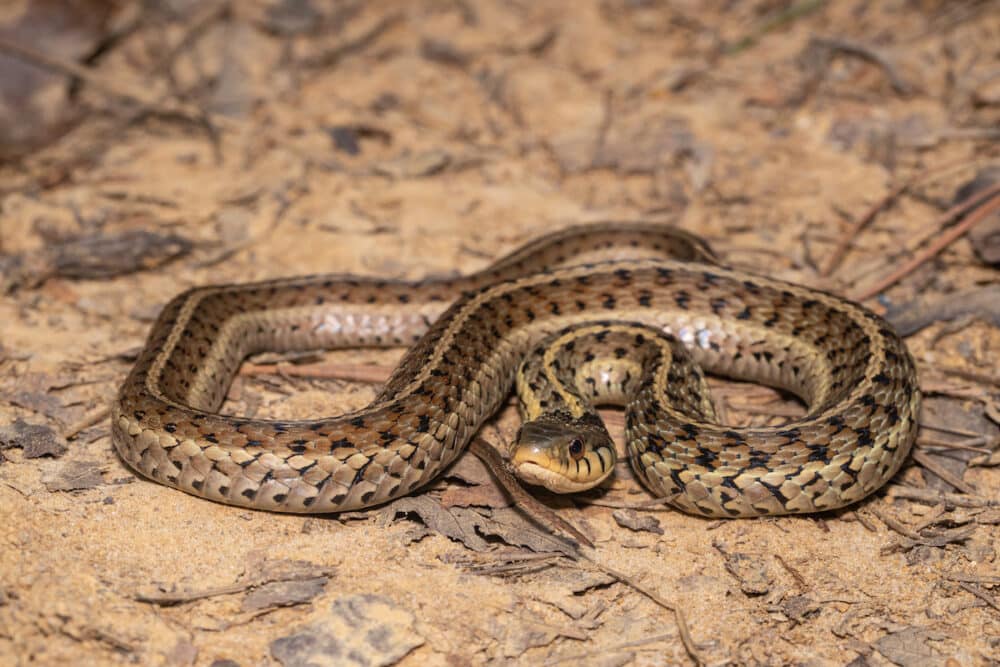
1. Eliminate Food Sources
The first step in snake prevention is to remove or reduce their potential food sources. By making your property less appealing to rodents and other prey, you’ll also make it less attractive to snakes.
Rodent Control
- Seal Entry Points: Rodents often enter homes through small cracks and gaps. Inspect your home’s foundation, walls, and roofline for any openings and seal them with caulk or steel wool.
- Remove Bird Feeders: Bird feeders can attract not only birds but also rodents. If you have bird feeders, consider removing them or regularly clean up spilled seeds to discourage rodents from gathering.
- Store Food Properly: Keep all pet food, birdseed, and livestock feed in airtight containers to prevent attracting rodents.
- Use Rodent Traps: Place traps around your property to catch rodents before they become a food source for snakes.
Insect Control
- Reduce Insect Populations: Since some snakes feed on insects, controlling the insect population around your property is also important. Use insect repellents, eliminate standing water (where mosquitoes breed), and keep your property free of rotting organic material.
2. Remove Shelter Options
Snakes are more likely to stick around if they have plenty of places to hide. Eliminating potential shelters can make your property less appealing.
Clean Up Yard Debris
- Remove Piles: Get rid of any piles of wood, logs, rocks, or other debris in your yard. These can serve as hiding spots for snakes.
- Organize Firewood: Store firewood at least 18 inches off the ground and away from your home. This makes it less likely to attract snakes seeking shelter.
Maintain Landscaping
- Trim Bushes and Shrubs: Keep bushes, shrubs, and hedges trimmed and tidy. They often hide in thick vegetation, so regular maintenance is key.
- Mow the Lawn: Regularly mow your lawn to keep grass short. They are less likely to venture into areas where they can’t hide in tall grass.
- Remove Mulch: Thick layers of mulch can provide a cool, damp hiding spot for snakes. Consider using less mulch or replacing it with gravel or another ground cover.
Secure Outbuildings
- Seal Cracks: If you have a shed, barn, or garage, then inspect it for any cracks or gaps that could allow them to enter. Use weatherstripping, caulk, or other materials to seal these openings.
- Keep Doors Closed: Make sure the doors to outbuildings are kept closed when not in use. They can easily slip into open spaces.
3. Reduce Water Sources
Snakes are drawn to water, so reducing water sources on your property can make it less attractive to them.
Fix Leaks
- Repair Plumbing: Check your outdoor plumbing for any leaks or drips, and repair them promptly. Standing water can attract both insects and snakes.
- Drainage: Ensure that your property has proper drainage to prevent puddles and standing water from accumulating.
Limit Water Features
- Cover Pools and Ponds: If you have a swimming pool, pond, or other water features, then consider covering them when not in use. This not only keeps snakes out but also prevents other wildlife from being attracted to your property.
- Remove Birdbaths: Birdbaths can also attract snakes, especially in dry weather. Consider removing them or emptying them regularly.
4. Create Physical Barriers
Installing physical barriers can be an effective way to keep them off your property.
Snake Fencing
- Install Fencing: Snake-proof fencing can be installed around the perimeter of your property or specific areas where you want to keep snakes out. These fences are typically made of mesh or solid materials and should be buried at least a few inches underground to prevent snakes from burrowing underneath.
- Fence Maintenance: Regularly inspect your fence for any holes or gaps that could allow snakes to slip through.
Seal Gaps Around the Home
- Door and Window Seals: Check the seals around your doors and windows and replace any that are damaged or worn. They can enter homes through even the smallest gaps.
- Vent Covers: Ensure that all vents leading into your home are covered with fine mesh to prevent snakes from entering.
5. Use Natural Snake Repellents
There are several natural methods you can use to deter snakes from entering your property.
Plant Snake-Repelling Plants
- Marigolds and Lemongrass: Some plants, like marigolds, lemongrass, and garlic, can repel them due to their strong scents. Consider planting these around the perimeter of your yard or near entry points to your home.
- Wormwood: Wormwood is a plant that repels snakes. It can be planted in your garden or used as a ground cover.
Essential Oils
- Cinnamon and Clove Oil: Snakes dislike the smell of cinnamon and clove oil. You can create a natural snake repellent by mixing these oils with water and spraying it around the perimeter of your property.
- Peppermint Oil: Peppermint oil is another scent that snakes tend to avoid. Mix it with water and spray it around entry points to your home.
Mothballs
- Use Caution: Mothballs can be placed in areas where snakes enter, but they should be used with caution. Mothballs are toxic to pets and children, so it’s important to place them in areas where they won’t be accessible.
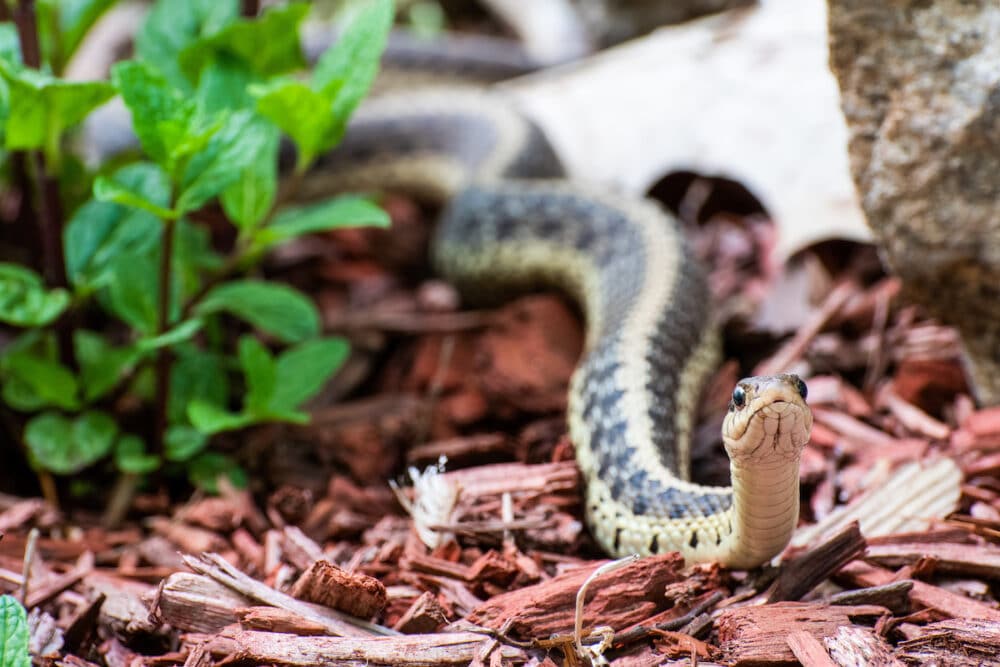
6. Consider Professional Help
If you’re dealing with a persistent problem or if you live in an area with venomous snakes, then it may be time to call in the professionals.
Wildlife Removal Services
- Professional Inspection: A professional wildlife removal service can inspect your property for potential snake attractants and offer customized solutions to keep them away.
- Safe Removal: If it does make its way onto your property, then professionals have the knowledge and tools to safely remove it without harming the snake or putting your family at risk.
- Long-Term Prevention: In addition to removal, professionals can provide long-term prevention strategies, such as installing snake-proof fencing or sealing entry points to your home.
Protect Your Property from Snakes with Covenant Wildlife
Snakes play an important role in our ecosystem, but that doesn’t mean you want them taking up residence on your property. By following the tips outlined in this article, you can make your property less attractive to them and reduce the likelihood of an unwanted encounter.
If you’re concerned about snakes on your property or if you’ve spotted one and aren’t sure how to handle it, then Covenant Wildlife is here to help. Our team of wildlife experts specializes in humane snake removal and prevention strategies that are tailored to your specific needs. We understand the local wildlife and know how to effectively keep snakes and other pests at bay.
Don’t let the fear of snakes keep you from enjoying your outdoor spaces.
Contact Covenant Wildlife today to schedule an inspection or learn more about our services. With our help, you can protect your property and keep it safe for your family and pets!
